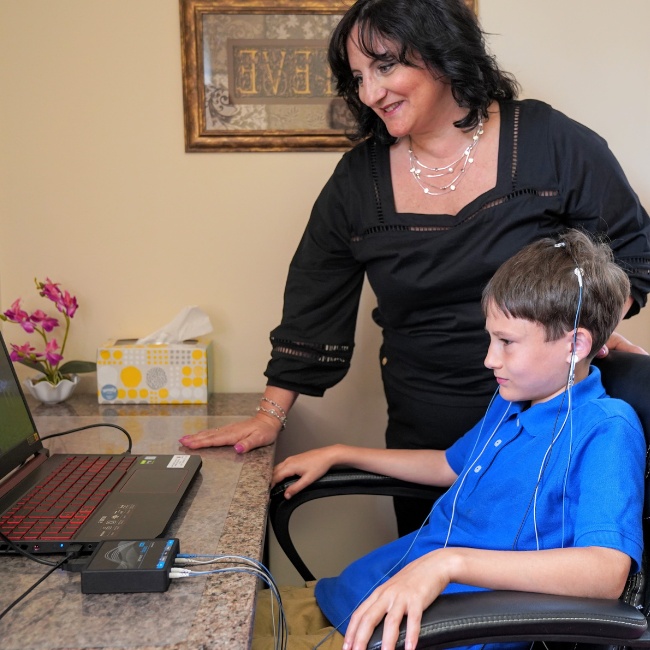How Effective is Neurofeedback?
Neurofeedback has been extremely useful in the treatment of many neurological diseases and disorders and clinical conditions. Neurofeedback has been used for decades to treat clinical conditions such as ADHD, ASD, learning disabilities, concussion, anxiety, stress, depression, OCD, sleep problems, and PTSD. These conditions are all about dysregulation of the central nervous system and neurofeedback is an effective way to regulate the brain, which results in improved focus, thinking, mood, and behavior.
Through the use of computers, one gets feedback at the subconscious level to change their brain waves from dysregulated to regulated state. Over a series of sessions the nervous system moves from an activated sympathetic dominant state to a calm, focused parasympathetic state so one can focus, think, and take action.
Consistent with the research, people make significant gains with Neurofeedback, and most clients at our center (90 % or more) report significant change and symptom reduction. Clients often report greater success than what they initially expected (especially after trying other treatments unsuccessfully). If success isn’t seen, there is typically a medical, nutritional or environmental reason, which needs to be addressed.*
Research links: www.eeginfo.com/research
https://isnr.org/isnr-comprehensive-bibliography





